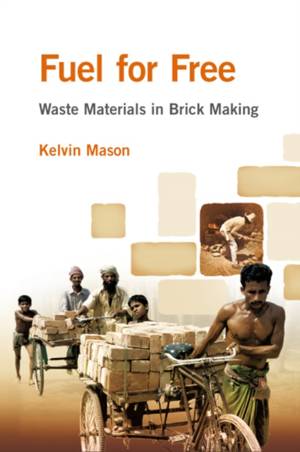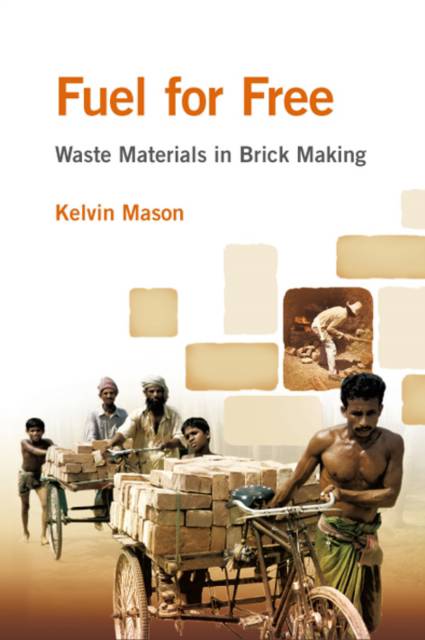
- Afhalen na 1 uur in een winkel met voorraad
- Gratis thuislevering in België vanaf € 30
- Ruim aanbod met 7 miljoen producten
- Afhalen na 1 uur in een winkel met voorraad
- Gratis thuislevering in België vanaf € 30
- Ruim aanbod met 7 miljoen producten
Zoeken
Omschrijving
This book covers the use of wastes in firing clay bricks via case studies in Zimbabwe, Sudan, Sri Lanka, and Peru. With respect to both livelihoods and the environment, energy efficiency in brickmaking is critical. Not only does increasing energy efficiency serve to reduce brickmakers' fuel costs and hence increase their income, it also reduces the emissions of carbon dioxide and other pollutants per brick produced. This book demonstrates that if energy efficiency is combined with appropriate fuel substitutions (co-firing), then the beneficial effect on both income and the environment can be significantly enhanced. The book addresses issues of energy use, the environmental impact of brickmaking, and the technologies of fuel substitution and co-firing via case-studies of the work of Practical Action. The Peru study investigates the use of coal-dust, coal-dust briquettes, waste oil, rice husks and sawdust. The Sudan and Zimbabwe studies look at using a variety of wastes, including cow-dung, bagasse and boiler waste. The book then explores the possible alternative futures for brickmakers and the need to mobilize political support for energy efficiency and fuel substitution.
Specificaties
Betrokkenen
- Auteur(s):
- Uitgeverij:
Inhoud
- Aantal bladzijden:
- 184
- Taal:
- Engels
Eigenschappen
- Productcode (EAN):
- 9781853396250
- Verschijningsdatum:
- 15/12/2007
- Uitvoering:
- Paperback
- Formaat:
- Trade paperback (VS)
- Afmetingen:
- 156 mm x 235 mm
- Gewicht:
- 290 g

Alleen bij Standaard Boekhandel
+ 60 punten op je klantenkaart van Standaard Boekhandel
Beoordelingen
We publiceren alleen reviews die voldoen aan de voorwaarden voor reviews. Bekijk onze voorwaarden voor reviews.











